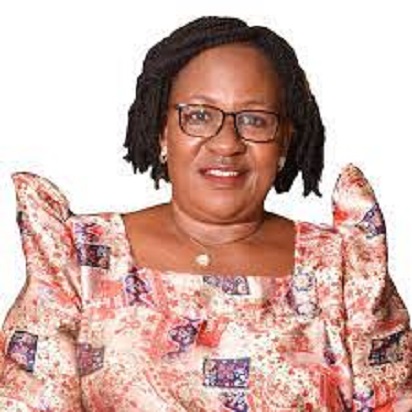Florence Namayanja, the Masaka City Mayor
Masaka City Council is facing difficulties in meeting its property tax collection targets as several landlords are absent from the area. The city council treasury is registering a significant shortfall in local revenue collections, mainly due to a high default rate on property rates.
Last year, Masaka City Council compiled an assessment and tax evaluation roll, which indicated that 20,061 buildings in the area are eligible for paying property tax. The tax is charged on immovable properties that are commercially managed, such as schools, hotels, rented houses, rented shops, and factories. The city had projected to collect at least 2.5 billion shillings in each financial year if property owners complied by contributing a 5% tax to the city treasury.
According to Michael Mulindwa Nakumusana, the Nyendo-Mukungwe Division Chairperson, the majority of property owners are not meeting their property tax obligations, which has contributed to a significant deficit in local revenue collections in the city. He notes that the city’s tax mobilization teams are struggling to locate many of the property owners and serve them tax evaluation notices, thereby failing to meet their tax obligations.
The city only raised 965 billion shillings out of a projection of 2.1 billion shillings in property tax in the last financial year, according to the budget performance report. Mulindwa explains that most of the defaulting properties are owned by absentee landlords, and the current occupants are hesitant to help the tax collection teams locate the real proprietors.
To address the issue, Mulindwa states that the City Council has generated a list of properties that have consistently defaulted on their tax obligations for a long time. Besides publishing the list of defaulters, he says the city is also considering using the courts of law to help recover the taxes.
Florence Namayanja, the Masaka City Mayor, notes that as the political leadership, they have taken it upon themselves to mobilize tax compliance in their respective electoral areas to support the city to generate the required revenue to run its operations.
However, Edward Lutaaya, the Chairperson of Masaka City Property Owners Association, partly blames the apparent default rate on the ruthlessness of some members of the tax mobilizing team who are tough on landlords. As a result, they chose not to pay the taxes.
He has challenged the City Council authorities to hold a mutual engagement with the association of property owners to agree on affordable property rates and how to schedule the payments, rather than choosing to use the court process, which will incur high costs.
-URN





